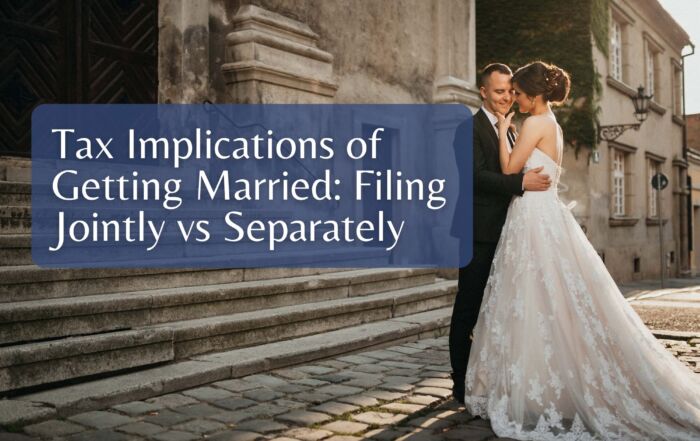How do I avoid paying gift tax?

When it comes to giving gifts to loved ones, nobody wants the additional concern of incurring a hefty gift tax. Fortunately, with strategic planning and a solid understanding of the IRS guidelines, you can give generously without triggering unwanted tax consequences. Here are some effective strategies to avoid gift tax as well as real-life case studies.
Understanding Gift Tax Basics
Before diving into avoidance strategies, it’s essential to understand what gift tax is. The IRS defines a gift as any transfer to an individual, either directly or indirectly, where full consideration (measured in money or money’s worth) is not received in return. In 2024, the annual gift tax exclusion is $18,000 per recipient. This means you can give up to $18,000 to as many people as you like without gift tax implications.
Lifetime Gift Tax Exemption
In addition to the annual exclusion, there’s also a lifetime gift tax exemption. This exemption covers gifts above the annual exclusion limit, and for 2024, it stands at $12.92 million. This is the total amount you can give away over the course of your lifetime beyond the annual exclusion gifts without having to pay gift tax.
Case Study 1: College Tuition Payments
Situation: John and Lisa want to support their granddaughter, Emma, by contributing to her college tuition. They are aware of the gift tax and are looking for a way to help without triggering it.
Strategy: John and Lisa decide to make direct payments to the university for Emma’s tuition. Payments made directly to a qualifying educational institution for tuition purposes are exempt from gift tax, regardless of the amount.
Outcome: By paying directly to the institution, they avoid using any of their annual exclusion or dipping into the lifetime exemption. This method also allows them to support Emma’s education generously without incurring additional taxes.
Case Study 2: Medical Expense Assistance
Situation: Mike’s brother, Tom, has incurred significant medical bills following a surgery. Mike wants to help Tom with his medical bills without the gift being taxable.
Strategy: Mike chooses to pay the hospital directly for Tom’s medical expenses. Similar to educational expenses, payments made directly to a medical institution for someone’s medical expenses are exempt from gift tax.
Outcome: Mike’s payments do not count against his $18,000 annual exclusion per person, nor do they reduce his lifetime exemption. This approach is not only tax-efficient but also provides substantial financial support to Tom during a difficult time.
Case Study 3: Real Estate Gift to a Child
Situation: Helen and Robert want to help their son, David, purchase his first home. They consider gifting him $100,000 as a down payment. However, they are concerned about the potential gift tax implications of such a significant amount.
Strategy: Helen and Robert decide to utilize their annual exclusions and lifetime exemptions strategically. First, they split the gift between them, with each giving $50,000. This approach utilizes $36,000 of their combined annual exclusion for gifts (since they are married and each can give $18,000).
Outcome: The remaining $64,000 of the gift triggers the use of their lifetime exemptions but does not require them to pay any out-of-pocket gift tax immediately. However, they are required to file a gift tax return showing no gift tax liability. This method allows them to maximize their annual exclusions and minimize the impact on their lifetime exemption. By gifting in this strategic manner, Helen and Robert assist their son with a significant purchase while managing their gift tax exposure effectively.
Tips for Avoiding Gift Tax
- Gift Splitting: If you’re married, you and your spouse can each give $18,000 to the same person, which effectively allows a couple to give $38,000 to an individual recipient without any gift tax implications.
- Plan Ahead: Utilize the annual exclusion every year, especially if you intend to transfer significant wealth over time. Regular, planned gifting can significantly reduce your taxable estate without impacting your lifetime exemption.
Understanding and utilizing the rules surrounding gift tax can significantly enhance the impact of your generosity. By employing strategies like paying directly for educational and medical expenses, or taking advantage of annual exclusions and gift splitting, you can provide substantial support to loved ones without the burden of taxes. Always consider consulting with a tax professional to tailor these strategies to your specific financial situation.
Have questions? Feel free to contact us.
Casey Smith
President, Wiser Wealth Management
Share This Story, Choose Your Platform!
Wiser Wealth Management, Inc (“Wiser Wealth”) is a registered investment adviser with the U.S. Securities and Exchange Commission (SEC). As a registered investment adviser, Wiser Wealth and its employees are subject to various rules, filings, and requirements. You can visit the SEC’s website here to obtain further information on our firm or investment adviser’s registration.
Wiser Wealth’s website provides general information regarding our business along with access to additional investment related information, various financial calculators, and external / third party links. Material presented on this website is believed to be from reliable sources and is meant for informational purposes only. Wiser Wealth does not endorse or accept responsibility for the content of any third-party website and is not affiliated with any third-party website or social media page. Wiser Wealth does not expressly or implicitly adopt or endorse any of the expressions, opinions or content posted by third party websites or on social media pages. While Wiser Wealth uses reasonable efforts to obtain information from sources it believes to be reliable, we make no representation that the information or opinions contained in our publications are accurate, reliable, or complete.
To the extent that you utilize any financial calculators or links in our website, you acknowledge and understand that the information provided to you should not be construed as personal investment advice from Wiser Wealth or any of its investment professionals. Advice provided by Wiser Wealth is given only within the context of our contractual agreement with the client. Wiser Wealth does not offer legal, accounting or tax advice. Consult your own attorney, accountant, and other professionals for these services.





